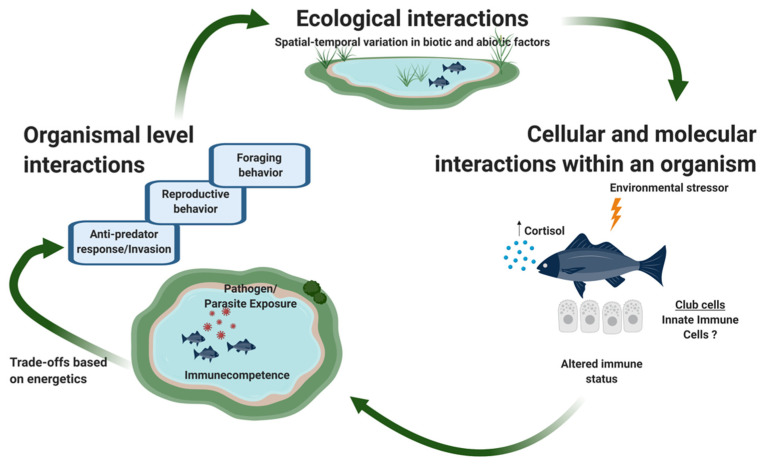Figure 3.
An ecoimmunological perspective on epidermal club cells (ECCs). An ecoimmunological perspective integrates external environmental interactions with internal cellular and molecular immunological dynamics. ECCs may benefit an individual by serving as a component of the innate immune system, although the specific functions they serve are poorly understood and may vary widely among species. ECCs respond to environmental stressors, such as pathogens, UV rays, mechanical damage epidermis, seasonal changes (e.g., breeding season), etc. These stressors can elevate cortisol levels, which can in turn increase ECC density, and alter an organism’s immunological state. The immune status of an individual in turn determines its competence to fight pathogens and parasites in the environment. The cost of activating immune system components has trade-offs with other demands on an organism and can influence its anti-predator response, invasive capabilities—which require exploration of new territories, environments, pathogens, and parasites, foraging activity, and reproductive success. These trade-offs will vary spatially and temporally in response to geographic and seasonal variation in abiotic and biotic factors. Schematic created using www.biorender.com.

